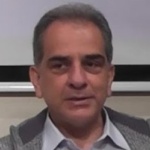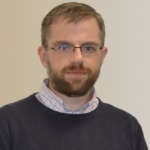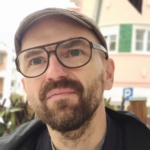 Training School: Argument Mining and Argumentation-based Explainable AI
Training School: Argument Mining and Argumentation-based Explainable AI
February 22 nd – 24 th 2023
Lordos Beach Hotel, Larnaca, Cyprus
APPLY HERE until the 15th of January
This Training School consists of two parts. The first part is dedicated to the topic of Argumentation Mining with the purpose of introducing the field of argumentation mining to the participants, exploring the connections between human reasoning, computational linguistics and argumentation theory. During the Training School, participants will be introduced to the theoretical grounds of computational argumentation and participate in practical training with Machine Learning systems.
The second part of the Training School will be dedicated to the “know-how” workshop that will help young researchers to successfully develop their careers. The workshop will represent the closing of the series of Training Schools organised by the APPLY project and will include important topics for the academic career of young researchers such as the successful publication of papers, the experience of representing and communicating through the media and the writing of scientific projects.
PART A: Argument Mining
This part will explore the ways in which the structure of reasoning can be extracted automatically from natural language text. Combining the perspectives of argumentation theory and computational linguistics, it will study how arguments are understood by both humans and machines. From individual propositions and their types, to complex instances of argumentation schemes, a number of techniques for the automatic identification and classification of these aspects of reasoning will be presented and discussed.
Practical Training: students will become familiar with Machine Learning systems for identifying individual aspects of argument structure. They will learn how these systems can be used and how they can work together to provide a richer understanding of the reasoning contained in a given text.
PART B: Argumentation-based Explainable AI
This part will review the theory of reasoning via argumentation and its use as a basis for decision-making. It will also present the central role of argumentation-based reasoning in learning, and how learning and reasoning through argumentation can be interrelated. It will then present the strong and natural link between argumentation and explanation at the human cognitive level and show how cognitive argumentation can shape human reasoning.
Practical Training: students will be exposed to argumentation-based tools/systems for explainable decision-making and explainable Machine Learning. They will learn how these tools can be used within the development of human-centred AI systems. They will then use these tools in a group project to develop a simple explainable module in the context of a real-life application system.
PART C: Know-how workshop for successful career development after APPLY
This part will consist of several sessions dedicated to building successful publication strategies, writing winning projects, academic career development and effective science popularisation.
Career development: from trainee to trainer – Trainer Petar Bodlović
This session discusses a delicate step in the life of an early-career researcher, namely, the transition from a doctoral to a post-doctoral position. Roughly, the session centres around two chief questions: “how to choose” and “how to be chosen.” Choosing the right postdoc position involves weighing distinct considerations, from salary and contract length, the nature and future potential of the research topic, to the employer’s academic reputation. On the other hand, getting selected for the preferred position involves having (i) a strong CV, (ii) tailor-made recommendation letters, (iii) writing a persuasive motivation (cover) letter, (iv) a promising research proposal, and (v) choosing the appropriate interview strategy. The purpose of this interactive session is to offer recommendations and share some practical tips (mostly from the trainer’s personal experience) that might ease the transition from the role of doctoral to postdoctoral fellow.
Becoming a public expert in media – Trainer Gabrijela Kišiček
The main objective of this workshop is to improve media performance skills for argumentation scholars and to provide guidelines for performance in media. Popularization of research is an important part of scholarly work and includes disseminating the findings of the research with a wider audience and non-professionals. That is especially important in a public policy and argumentation analysis because findings and research results could be effectively implemented in real-life situations such as parliamentary debates, election campaigns etc.
The workshop will consist of recommendations and suggestions for selecting the most relevant media platform for dissemination, the selection of the topic for the media presentation, the choice of effective language but also of other modes for the interpretation of the results (multimodal communication) and the search for the most ‘media-appealing’ way of presenting the research results.
How to publish your work in top journals – Marcin Lewiński
This know-how session will assist participants in developing their adequate publication strategy. It will be an interactive session driven by participants’ questions and doubts. The chief topics to be discussed include the selection of the right journal within an adequate disciplinary area and with a satisfactory impact, special issue vs. regular issue submissions, formulation of a “sexy” title and an informative abstract, preparation of manuscripts for double-blind peer-review, the review-and-revision process, and communication with the editors and reviewers. (All this, of course, on top of the scholarly quality of the work to be submitted!)
How to write and win a scientific project – Marcin Lewiński & Gabrijela Kisicek
This final session will build on the publication session, both in format and content, to help Training School participants develop successful research projects for submission to funding agencies. First, the various funding sources and types of projects will be discussed. Special attention will be given to competitive postdoctoral grants. Secondly, the typical parts and sections of projects (the idea, the literature review, the work plan, and the deliverables) will be presented. Thirdly, the argumentative and rhetorical strategies for writing an attractive project will be discussed.
The main objective of both sessions is the transfer of knowledge and expertise, engrained in the mission of the COST Actions, between mid- and early-career scholars. While explicitly focused on academic work, the skills and strategies discussed will be useful in science communication and public outreach, in line with the objectives of the APPLY COST Action.
PROGRAMME
DAY 1
09:00 – 10:30 Part B: Argumentation & Explanation
10:30 – 11:00 Coffee Break
11:00 – 13:00 Part A: Argument Mining Fundamentals
13:00 – 14:30 Lunch
14:30 – 16:00 Part B: Argumentation in Practice
16:00 – 16:30 Coffee Break
16:30 – 18:00 Part A: Argument Mining Techniques
18:15 – 19:00 Part A & B: Group Project Allocation
19:30 – …. Dinner
DAY 2
09:00 – 10:30 Part B: Argumentation-based Tools
10:30 – 11:00 Coffee Break
11:00 – 13:00 Part A: Improving Argument Mining
13:00 – 14:30 Lunch
14:30 – 16:00 Part B: Argumentation in Practice
16:00 – 16:30 Coffee Break
17:30 – 19:00 Group Project Presentations OR GENERAL TRAINING Session 1
19:30 – …. Dinner
DAY 3
09:30 –11:00 GENERAL TRAINING Session 1 OR Group Project Presentations
11:00 –11.30 – Coffee Break
11.30 –12.00 – Career development – from a trainee to a trainer – Petar Bodlovic
12.00 –13.00 – Becoming a public expert in media – Gabrijela Kišiček
13.00 –14.30 – Lunch
14.30 –15.30 – How to publish your work in top journals – Marcin Lewiński
15.30 –16.30 – How to write and win scientific project – Marcin Lewiński & Gabrijela Kišiček
16.30 –17.00 – Closing of the APPLY Training Schools
TRAINERS
 Antonis C. Kakas is a Professor at the Department of Computer Science of the University of Cyprus. He obtained his Ph.D. in Theoretical Physics from Imperial College London in 1984. His interest in Computing and AI started in 1989 under the group of Professor Kowalski. Since then his research has concentrated on computational logic in AI with particular interest in argumentation, abduction and induction and their application to Machine Learning and cognitive systems. He has co-developed at the UCY the argumentation system of GORGIAS which has been applied to a wide range of problems in multi-agent systems and cognitive agents. With others he has proposed, Argumentation Logic, as a logic that offers a new perspective for logic-based AI that facilitates the synthesis of Cognitive Psychology with theory and methods from AI. Currently, he is working on the development of a new framework of Cognitive Programming that aims to offer an environment for developing Human-centric AI systems that can be naturally used by developers and human users at large. He is the National Contact Point for Cyprus in the flagship EU project on AI, AI4EU. He has recently co-founded a start-up company in Paris, called Argument Theory, which offers solutions to real-life application decision taking problems based on argumentation technology.
Antonis C. Kakas is a Professor at the Department of Computer Science of the University of Cyprus. He obtained his Ph.D. in Theoretical Physics from Imperial College London in 1984. His interest in Computing and AI started in 1989 under the group of Professor Kowalski. Since then his research has concentrated on computational logic in AI with particular interest in argumentation, abduction and induction and their application to Machine Learning and cognitive systems. He has co-developed at the UCY the argumentation system of GORGIAS which has been applied to a wide range of problems in multi-agent systems and cognitive agents. With others he has proposed, Argumentation Logic, as a logic that offers a new perspective for logic-based AI that facilitates the synthesis of Cognitive Psychology with theory and methods from AI. Currently, he is working on the development of a new framework of Cognitive Programming that aims to offer an environment for developing Human-centric AI systems that can be naturally used by developers and human users at large. He is the National Contact Point for Cyprus in the flagship EU project on AI, AI4EU. He has recently co-founded a start-up company in Paris, called Argument Theory, which offers solutions to real-life application decision taking problems based on argumentation technology.
 John Lawrence is a lecturer in the Centre for Argument Technology at the University of Dundee, and manager of the centre’s Infrastructure Working Group, responsible for the design and development of argument technology software with over 20,000 users in 46 different countries. Such software includes the most widely used tools for argument analysis (OVA), storage (AIFdb), and visualisation (Argument Analytics), as well as two projects in collaboration with the BBC – Test Your Argument, and the Evidence Toolkit, deployed to over 3,000 secondary schools in the UK as part of BBC School Report 2018. John combines 15 years of professional software development experience, working with companies such as Hewlett Packard, IBM and the BBC, alongside an academic track record of over 40 publications spanning the leading journals in Artificial Intelligence and Computational Linguistics. His principal research interests focus on the connection between argument mining and explainability in AI.
John Lawrence is a lecturer in the Centre for Argument Technology at the University of Dundee, and manager of the centre’s Infrastructure Working Group, responsible for the design and development of argument technology software with over 20,000 users in 46 different countries. Such software includes the most widely used tools for argument analysis (OVA), storage (AIFdb), and visualisation (Argument Analytics), as well as two projects in collaboration with the BBC – Test Your Argument, and the Evidence Toolkit, deployed to over 3,000 secondary schools in the UK as part of BBC School Report 2018. John combines 15 years of professional software development experience, working with companies such as Hewlett Packard, IBM and the BBC, alongside an academic track record of over 40 publications spanning the leading journals in Artificial Intelligence and Computational Linguistics. His principal research interests focus on the connection between argument mining and explainability in AI.
 Marcin Lewiński (PhD University of Amsterdam, 2010) is Assistant Professor in the NOVA Institute of Philosophy and the Department of Communication, NOVA University Lisbon. His research applying philosophical concepts to the study of public argumentation has been published in journals, edited volumes, and special issues. His most recent work (co-authored with Mark Aakhus, Rutgers University) is a monograph, Argumentation in Complex Communication: Managing Disagreement in a Polylogue published by Cambridge University Press (2023). He was the Chair of the Reasoning and Argumentation Lab (2017-2022) and is currently leading two EU-funded project: COST Action European network for argumentation and public policy analysis (APPLY: 2018-2023) and the Portuguese team of the CHIST-ERA project Argumentation-driven explainable artificial intelligence for digital medicine (ANTIDOTE: 2021-2024). As of January 2023 he is the Associate Editor of TOPOI: An International Review of Philosophy. He has edited volumes, proceedings, and special issues for Argumentation Library, Journal of Argumentation in Context, TOPOI, John Benjamins, College Publications, and OSSA. https://ifilnova.pt/en/people/marcin-lewinski/
Marcin Lewiński (PhD University of Amsterdam, 2010) is Assistant Professor in the NOVA Institute of Philosophy and the Department of Communication, NOVA University Lisbon. His research applying philosophical concepts to the study of public argumentation has been published in journals, edited volumes, and special issues. His most recent work (co-authored with Mark Aakhus, Rutgers University) is a monograph, Argumentation in Complex Communication: Managing Disagreement in a Polylogue published by Cambridge University Press (2023). He was the Chair of the Reasoning and Argumentation Lab (2017-2022) and is currently leading two EU-funded project: COST Action European network for argumentation and public policy analysis (APPLY: 2018-2023) and the Portuguese team of the CHIST-ERA project Argumentation-driven explainable artificial intelligence for digital medicine (ANTIDOTE: 2021-2024). As of January 2023 he is the Associate Editor of TOPOI: An International Review of Philosophy. He has edited volumes, proceedings, and special issues for Argumentation Library, Journal of Argumentation in Context, TOPOI, John Benjamins, College Publications, and OSSA. https://ifilnova.pt/en/people/marcin-lewinski/
 Gabrijela Kišiček is an Assistant Professor at the Faculty of Humanities and Social Sciences at the University of Zagreb. During the years Gabrijela Kišiček participated at several courses at the Department of Phonetics: Nonverbal communication, Rhetoric, Argumentation, History of Rhetoric, Public Speaking. Gabrijela Kišiček cooperates with “London School of Public relations” where she teaches courses: Rhetoric and Society, Media relations and Internal communication. She also works on national television Nova TV as a media speech coach and an expert commentator for political communication.
Gabrijela Kišiček is an Assistant Professor at the Faculty of Humanities and Social Sciences at the University of Zagreb. During the years Gabrijela Kišiček participated at several courses at the Department of Phonetics: Nonverbal communication, Rhetoric, Argumentation, History of Rhetoric, Public Speaking. Gabrijela Kišiček cooperates with “London School of Public relations” where she teaches courses: Rhetoric and Society, Media relations and Internal communication. She also works on national television Nova TV as a media speech coach and an expert commentator for political communication.
 Petar Bodlović, born in Dubrovnik (Croatia), is a doctor of philosophy, currently associated with the Institute of Philosophy (ArgLab) at the Nova University of Lisbon (Portugal) and collaborating on the project “ANTIDOTE—Argumentation-Driven explainable artificial intelligence for digital medicine.” He defended his Ph.D. thesis (Presumptions in Argumentation: A Systematic Analysis) in 2022 (University of Groningen, the Netherlands). His area of specialization is the theory of argument and critical dialogue, with a special emphasis on the function of presumptions and explanations. He published several original papers in scholarly journals such as Argumentation, Informal logic, Pragmatics & Cognition, Cogency, and Prolegomena, as well as in conference proceedings (e.g., ISSA 2018, ECA 2019, OSSA 2020).
Petar Bodlović, born in Dubrovnik (Croatia), is a doctor of philosophy, currently associated with the Institute of Philosophy (ArgLab) at the Nova University of Lisbon (Portugal) and collaborating on the project “ANTIDOTE—Argumentation-Driven explainable artificial intelligence for digital medicine.” He defended his Ph.D. thesis (Presumptions in Argumentation: A Systematic Analysis) in 2022 (University of Groningen, the Netherlands). His area of specialization is the theory of argument and critical dialogue, with a special emphasis on the function of presumptions and explanations. He published several original papers in scholarly journals such as Argumentation, Informal logic, Pragmatics & Cognition, Cogency, and Prolegomena, as well as in conference proceedings (e.g., ISSA 2018, ECA 2019, OSSA 2020).
VENUE
Useful travel information
Fly to Larnaca airport. More information coming soon.
Important dates
Deadline for application: January 15 th 2023
Notification of acceptance: January 21 st 2023
Confirmation of participation: January 27 th 2023
Target audience
The training school is intended for PhD students, early career researchers and all academics and practitioners who are interested in argumentation mining and AI. Please note that applying for the training school does not automatically guarantee access to it. In case of high application numbers priority will be given to PhD students or early career researchers (max. 8 years since PhD award).
Funding
Participants affiliated to an academic institution or company from a COST Full Member Country, a COST Cooperating Member Country or from a COST Near Neighbour Country may apply for a bursary. The exact value of the bursary depends on the expected travel and accommodation costs. The maximum amount that may be reimbursed will be communicated to the participants when notified of their acceptance to the training school.
Training School contacts:
Local organizer: Professor Antonis Kakas
Department of Computer Science
University of Cyprus
Email: antonis@ucy.ac.cy
Tel: +357-22-892700
Training school coordinator: Dr. Gabrijela Kišiček
Email: gkisicek@ffzg.hr
Faculty of Humanities and Social Sciences
University of Zagreb
Ivana Lucica 3
10000 Zagreb

